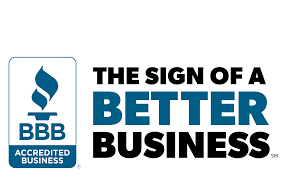HOA attorneys are paramount to any homeowners association. They perform tasks and consult on issues that an HOA would otherwise have no way of doing. Here’s why your association needs one.
In this article:
The Case for HOA Attorneys
Retaining the services of an attorney is important for every homeowners association. The HOA governing documents, as well as federal, state, and local laws, dictate many aspects of the community’s management. The association must follow these stipulations. Having a good attorney who specializes in community associations can assist in ensuring compliance and, in turn, preventing lawsuits. HOA attorneys can also aid in everything from amending CC&Rs to collections, as well as provide legal representation should the HOA need it.
Why HOA Attorneys Are So Important
 Any organization, whether for profit or not, can benefit from the aid of an attorney. That’s why so many companies have attorneys on retainer or even hire their own corporate counsel. Attorneys protect organizations, that’s just the way it is. And a homeowners association is no different.
Any organization, whether for profit or not, can benefit from the aid of an attorney. That’s why so many companies have attorneys on retainer or even hire their own corporate counsel. Attorneys protect organizations, that’s just the way it is. And a homeowners association is no different.
Retaining the services of an HOA attorney is instrumental in HOAs in many ways. Here are some of the roles an HOA attorney can help fulfill:
1. Interpret Governing Documents and Laws
As legal corporations, community associations are bound by their governing documents and federal, state, and local laws. HOA governing documents may be difficult to understand. But, HOA attorneys can assist with more difficult terms as well as assisting in interpretation. For instance, a homeowners association attorney could help a condominium association determine the maintenance responsibilities of the association and those of the individual unit owners.
2. Amend Governing Documents
An HOA lawyer can also help with making changes to the governing documents to modify everything from architectural guidelines to increase the number of board members. Amending the HOA governing documents is no small act. The process can take some time and a great deal of work.
When the HOA board chooses to amend the governing documents, they should make sure the changes don’t come into conflict with existing stipulations. The alterations should also comply with federal, state, and local laws. An attorney can help with that as well as the proper wording of any changes to minimize the risk of liability.
3. Collect Assessments
Unfortunately for many community associations, there are always homeowners who do not pay their assessments. This could stem from a number of reasons — from insufficient income to a downright refusal to do so. Most HOA boards do everything they can to collect delinquent dues, including imposing late fees and even revoking privileges.
If the board chooses to take further action, such as file a lawsuit or place a lien on the property, it will need the help of HOA attorneys. Of course, you should still make sure to act within the parameters of the governing documents.
4. Represent the HOA and Its Board
The HOA’s governing documents also list the fiduciary responsibilities of the board of directors. If a board is found to not be upholding these responsibilities or acting neglectfully, homeowners within the association may take legal action. The board of directors would then need legal representation, and in many cases, a lawyer they have already retained will be able to assist.
5. Overall Legal Counsel
Every homeowners association needs legal counsel for a sundry of issues. An HOA attorney can serve as general legal counsel when it comes to management concerns, such as disputes or accusations of discriminatory behavior. If the board is unsure of a course of action they intend to take, an attorney can weigh in with their expert opinion. In the long run, having an attorney by the board’s side will limit the possibility of liability.
How to Find an HOA Attorney for Your Association
 Finding an attorney who specializes in community associations may prove difficult as it is not a very popular specialty, nor is it one that is usually categorized on law firm directories. If your association utilizes a management firm, they will most likely have a relationship with one or more law firms in the area and be able to give a recommendation.
Finding an attorney who specializes in community associations may prove difficult as it is not a very popular specialty, nor is it one that is usually categorized on law firm directories. If your association utilizes a management firm, they will most likely have a relationship with one or more law firms in the area and be able to give a recommendation.
Another good place to look is the service directory of your local chapter of the Community Associations Institute (CAI). All of the lawyers listed will be a member of the organization and have experience in community association law. CAI is a reliable partner in the HOA industry, so you can trust their recommendations when it comes to HOA attorneys.
Word of mouth is also a great way to find an experienced lawyer. Talk with friends and family members who have served on the boards of other local HOAs as they may have had good experiences with a particular firm. Don’t just talk about the positives, though. If they have any criticisms about potential candidates, make sure to learn what these are, too.
If there aren’t any HOA law firms in your area or you’re unable to find an attorney in these manners, there are other types of attorneys that can be of assistance. Many board members think they need to select an attorney who specializes in real estate law. However, real estate law pertains to homeownership and disputes, not necessarily the same matters an HOA deals with. HOA governing documents function more as contracts. As such, an attorney who specializes in business or contractual law is a better option for matters involving governing documents.
For the Future of Your HOA
There’s no denying that HOA attorneys play an essential role in homeowners associations. They serve as the HOA board’s counsel, advising them on the best practices and steering them away from liability. Attorneys are also experts at interpreting the law and the HOA’s governing documents, thus, ensuring compliance and preventing conflict. Apart from that, HOA attorneys can help with collections of late assessments.
By retaining an attorney, homeowners associations not only protect themselves but all of their members now and in the future. Just as important as having an attorney, though, is finding the right one. Make sure to look at credentials, testimonies, and expertise when evaluating prospects. Beyond that, ensure that the attorney you ultimately select shares the same ideals as your association and works well with your board.







